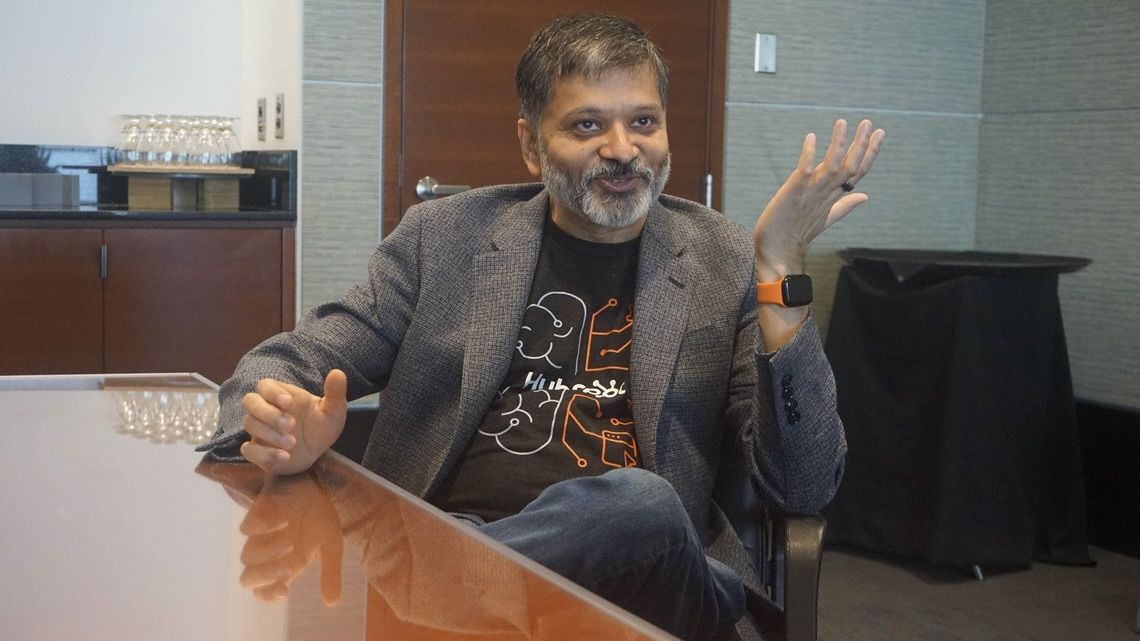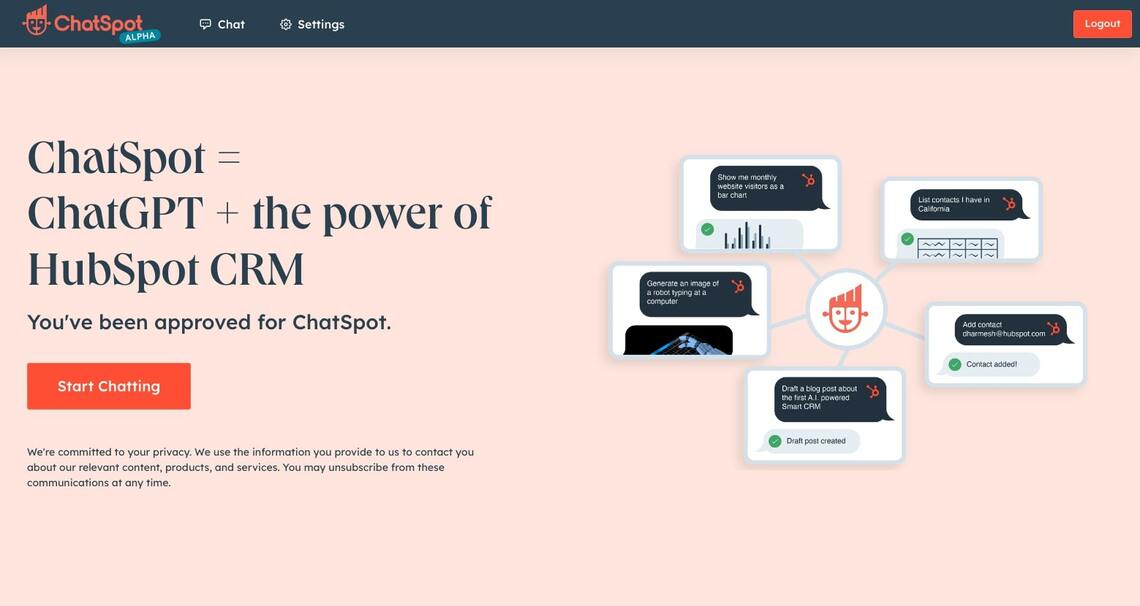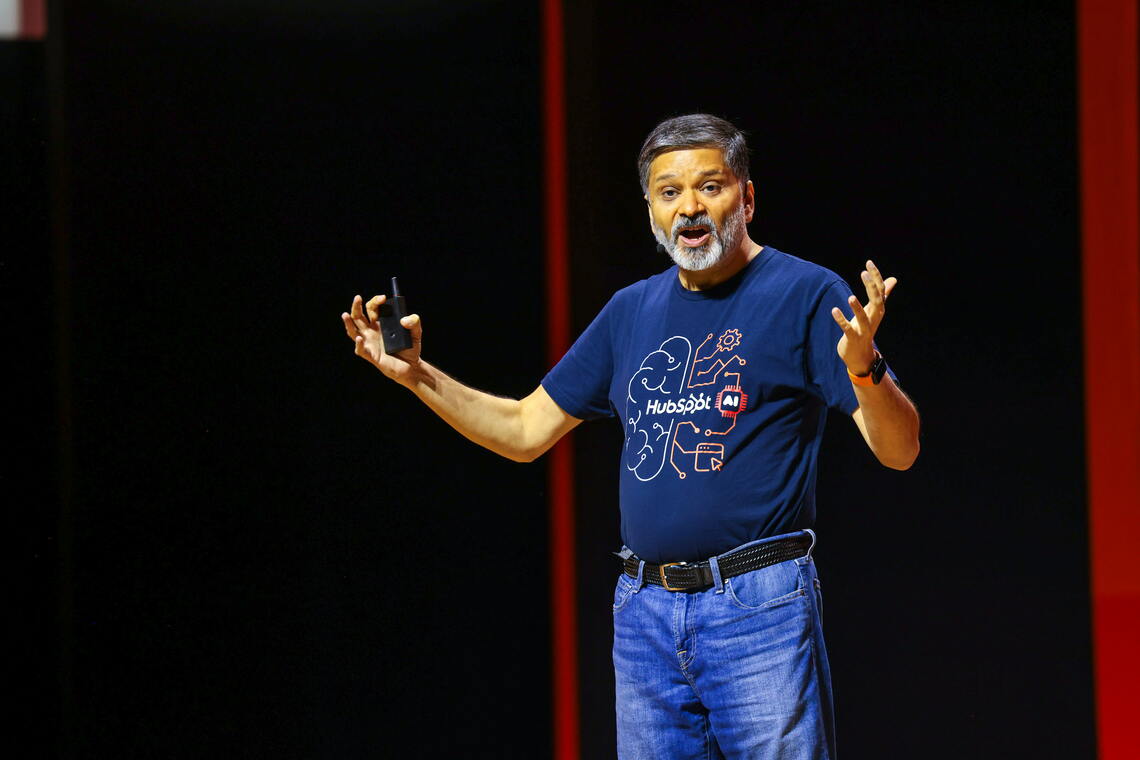
――At an event held in early September, HubSpot announced new AI products and features that help SMBs grow better. Tell me about that in more detail.
HubSpot AI is a robust portfolio of new and existing products and features available globally, consisting of some components like AI Assistant and ChatSpot etc.
AI Assistants is generative AI tools to supercharge marketing, sales, and service teams and it will work across the entire HubSpot platform to help teams draft content, create images, generate blog ideas, build websites, and develop reports — instantly. ChatSpot combines the power of ChatGPT with dozens of unique data sources, like a HubSpot customer’s Smart CRM, to give growing businesses access to powerful generative AI capabilities. Since launching in March 2023, ChatSpot has reached 80,000 total users and 20,000 prompts created per week.

The reason AI is exciting in terms of helping businesses grow is that, to me, this is like when the internet came out. HubSpot started about 17 years ago. When the company started, our observation was there was this new thing called the internet. And now businesses can reach their customers by virtue of the internet.
It was what we think of when we help small and medium sized businesses. We are not collaborating with super big companies. What the internet did is level the playing field. Even a small business or medium sized business could have access to customers via the internet. Now, fast forward to today, AI is a similar transformational shift where because of AI small and medium sized businesses can now do things that historically only larger companies would have been able to afford.
Taking that into consideration, HubSpot AI assists in drafting articles, creating social media posts, and generating images. It also enhances summarization, search, and improves the precision of marketing and sales automation.
Why it was possible to invest in Open AI as an individual
――You mentioned that you are a small investor in OpenAI, the company that operates ChatGPT, and that you have an insider advantage. Could you please elaborate on what it is?
I have known the OpenAI team for a long time. So, I played with GPT since the summer of 2020, before ChatGPT came out, as I talked about at my spotlights. And what they had before essentially was built for developers. Because that is what OpenAI was, say, hey, we will give you tools. You can build AI applications, and so, I have played with it.
Done the common things that had a little conversation, and it was even then good. The big jump that happened when they launched ChatGPT is that it now was accessible, you did not have to be a developer, you could just be a normal person. And then everyone, including me, has this kind of magical experience, the first time you try it, it can do things you never would have thought the computer would be able to do, right. Like, we have never seen that in our lifetimes.
I have known Sam Altman, before he even started OpenAI. He was a CEO of a company called Y Combinator that did a lot of startups in those days. I have invested in, like 30 or 40, Y startup companies as an angel investor. So, I have been in that network with him. Then when he started OpenAI, I did not know OpenAI would really become the business agenda. But the big advantage it has was less to do with getting commercial interests. The entire advantage is that I was able to call Sam up and say, ’hey, I know you are working on this new thing called GPT, I have heard of it. Can I get timely access? I just want to play with it.’ That same day, I remember I emailed him on a Sunday afternoon, like I was curious.
OpenAI was a kind of closed funding kind of process. Then once Microsoft came in with a $10 billion acquisition in January 2023, where no one else was really going to be able to invest. Although I cannot reveal details under a nondisclosure, it was a small investment for them.
For me personally, it is I think I have made about one hundred startup investments over the last 15 years. It was the largest one I have ever made. It still represents a small fraction because I did not get in early. But you know that this is an OpenAI already but can continue to be transformative and can be one of the most transformative companies we have had in technology in our lifetimes. It is a startup you never know. But there is going to be lots of competition from Google and Microsoft and others. I love Sam, he is super smart.
Gen AI is eloquent, but it poses certain risks
――You also mention the negative aspects of AI, including hallucination, which refers to the phenomenon in which AI generates information that is not based on fact.
There are a few things. If there are various categories of negative kinds of worrisome issues, hallucinations are one. As businesses, I think the thing we need to be aware of is that you cannot just take what comes out of an AI model right now based on what you are trying to do. Because it can get things that are factual, there are things that it is particularly good at, that it will usually not hallucinate on, and then things that are, like, factual, it can get wrong.
We must do some form of fact checking. If we were having this conversation, let us say we just had an AI model like it would get things fundamentally wrong, right. And, and two issues.
The second one, it does not really know that it is wrong. So, when it says it, it says it like it writes it well. It increases our trust because it is very eloquent. In the way it said, the first thing that I think is going to get resolved. And they are already working on AI models that are built to kind of test the output of other AI models. And not necessarily to fix the problems but to be able to recognize when something needs to be verified or assessed.
The third thing is around what someone considers inappropriate content, like subjects that is like how to build a bomb or doing something negative or how can I go rob a bank, and that they've gotten very, very good at now, in terms of what's called content, moderation, making sure that the output is not harmful, or the topic. Sometimes it is user-initiated users asking questions that are inappropriate, and sometimes illegal to ask, those are an exceedingly small fraction. Now a year ago, that was a large problem. With GPT-4 and in quad from Anthropic, an AI startup founded by former members of OpenAI, those issues have gotten better.

――How do you deal with these issues accordingly?
People must pick the right vendor and provider. Because what we have not talked about yet is the AI use of your data that you might send it right, like, okay, I am going to send the information about my customers or my company to AI, what are they going to do with it? What happens to that data once it leaves the company? So, number one is you must have picked a trusted partner, you must understand what they are going to do. What is the data? What is the contractual obligation in the HubSpot case, our relationship with OpenAI, prevents them from using the data that we send them our customer data for anything other than providing the responses.
Reaching potential customers has become challenging
――At last year's event HubSpot addressed the crisis of disconnection. How is the situation surrounding SMBs changing as inflation is hitting the American economy?
Issue of disconnections is still very real. They want to have good strong relationships with customers, they want to be helpful, answer the customers questions, and then service them well. Instead of focusing on connection — which 88% of sales leaders say is the most important part of their jobs — teams are bogged down by administrative tasks. That is a problem considering companies who focus on connection grow five times more than average.
Our hope, and our aspiration is that we can use AI and some of this modern technology that was not available a year ago, two years ago, to help customers, our customers, create deeper connections with their customers to say, okay, doesn't matter.
There are surely some social issues that are outside the scope of what HubSpot can really help with other than even trying to run a socially aware and environmentally friendly company as you pointed out. But in terms of the product and how we help our customers. We are extremely focused on SMB. And if you look at the issues SMB have, their problem is always limited resources. They are trying to find customers; they are trying to serve as customers. And to be limited along two dimensions. One is they simply do not have the money or the resources to be able to hire one hundred people to solve this problem, provide 24/7 support.
The second is around things that are just simply impractical. For a small business to offer. So, a big business is really to have phone support 24 hours a day, seven days a week, and never take a day off. If you are a seven-person company, you just cannot do that, right? It is not technically possible, but physically possible. We can provide now through for instance AI Agents, which is another component of HubSpot AI mentioned at the beginning ― you can say, oh, you can have a chatbot on your website that can answer questions from customers. Not perfect, but better than nothing. It will get smarter, and it will get better over time.



